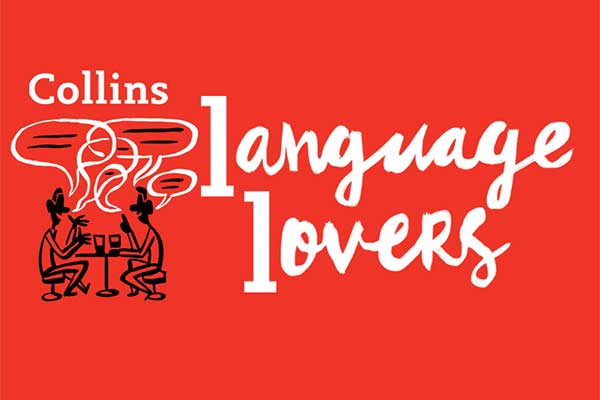Conversation had a very precise meaning for Dr Johnson, he of dictionary fame and a conversationalist par excellence. When his biographer, Boswell, asked him whether there had been good conversation at a dinner party, he declared: ‘No, Sir; we had talk enough, but no conversation; there was nothing discussed.’
The twelfth of July marks New Conversations Day. If you haven’t heard of it, don’t fret or feel afflicted by FOMO, for this is the first such day – ever. New Conversations Day is mooted by the Australian organisation Awkward Silence, who want to start people talking about matters more profound than the small talk that makes up many conversations. Their site claims that conversation is ‘our greatest asset’, that it’s ‘where ideas blossom’ and that ‘it’s the life-blood of relationships’.
Perhaps it reflects the earnestness of its aim that the site sticks rigorously to the full form conversation, avoiding the mainly Australian convo, a word which is yet another example of how Australian speakers of English love to make words friendlier by shortening them (arvo, ambo, Chrissie, etc. for ‘afternoon’, ‘ambulance’, ‘Christmas’).
However, there are conversations and there are conversations. The people at Awkward Silence suggest we eschew** talking about weather and sport. But conversational topics should be horses for courses: they depend on who you’re talking to/with. Weather and sport are neutral topics that facilitate ‘phatic communion’, that is, language whose purpose is to lubricate social interaction. It would be a rash person who asks a comparative stranger about which way they voted or their views on religion.
Arguably, the very word conversation is hydra-headed. With its light-hearted hat on it descends to mere chitchat, but when it is serious, it is a horse of another colour. Words have weight and mass, and conversation tends to the weighty and massive. How we use it in everyday language confirms this. The winner in a recent English by-election attributed her victory to the conversations she had throughout her constituency. For all we know, they might have been cosy little chats over a mug of tea; calling them conversations ennobled them.
Compare and contrast the import of someone saying ‘Can we have a quick chat about X?’ versus ‘We need to have a conversation about X’. Webster’s New World College Dictionary, an American dictionary offered on CollinsDictionary.com, cleaves its definition of conversation into ‘familiar talk; verbal exchange of ideas, opinions, etc.’, i.e. the chitchat aspect, and ‘an informal conference on a problem or area of interest by representatives of governments, factions, etc.’ We chat in social media chatrooms, but The Conversation is a website purveying fact-based commentary and analysis by academics.
Collins dictionaries editors present linguistic facts based on research in vast text collections called ‘corpora’ (singular corpus). The Collins entry for conversation includes illuminating sentences drawn from them. In ‘We found somewhere quiet to chat and the conversation became deep and personal’, the gearshift from chat to conversation is telling. In ‘The fun part of the job is having the creative conversations about where to take the channel’, you simply couldn’t replace conversation with chat – though discussion, as if in an echo of Dr Johnson’s phrase, would work. In ‘I’m interested in this because I’m now engaged in trying to change the conversation about conservation’, conversation seems to refer to the totality of discourse, public and private, in other words, what is often called the ‘narrative’.
Chat is a shortening of chatter, which is onomatopoeic, that is, ‘of imitative origin’. In its earliest written citation it denotes a bird noise; only later was it applied to talk in a development followed by the equally onomatopoeic twitter. In contrast, conversation belongs to the Latinate (via French) layer of English, the layer rich in technical and formal terms. If you are American, instead of participating in a conversation, you might take part in a bull session or even a skull session, while New Zealanders might enjoy a korero. Some – mostly British – people might call it a confab, though I suspect that abbreviation is on the wane.
As with conversation, Latin provides the term for the person you hold a conversation with, your interlocutor – a word unlikely to be uttered very often outside academia – from the Latin loquī, ‘to talk’. Contrast the learnèd loquacious, ultimately from the same Latin source, with the everyday talkative or chatty.
I think I’ve been quite chatty enough, so I’ll end this faux conversation – faux, in that conversation implies at least two interlocutors – and sign off with another quotation:
‘What ho!’ I said.
‘What ho!’ said Motty.
‘What ho! What ho!’
‘What ho! What ho! What ho!’
After that it seemed rather difficult to go on with the conversation.
P.G. Wodehouse, My Man Jeeves
**eschew is a word I never know how to pronounce. It seems it can be iss-chew (/ɪstʃuː/) or es-chew (/ɛstʃuː/).
By Jeremy Butterfield
Jeremy Butterfield is the former Editor-in-Chief of Collins Dictionaries, and editor of the fourth, revised edition of Fowler’s Dictionary of Modern English Usage.
All opinions expressed on this blog are those of the individual writers, and do not necessarily reflect the opinions or policies of Collins, or its parent company, HarperCollins.



